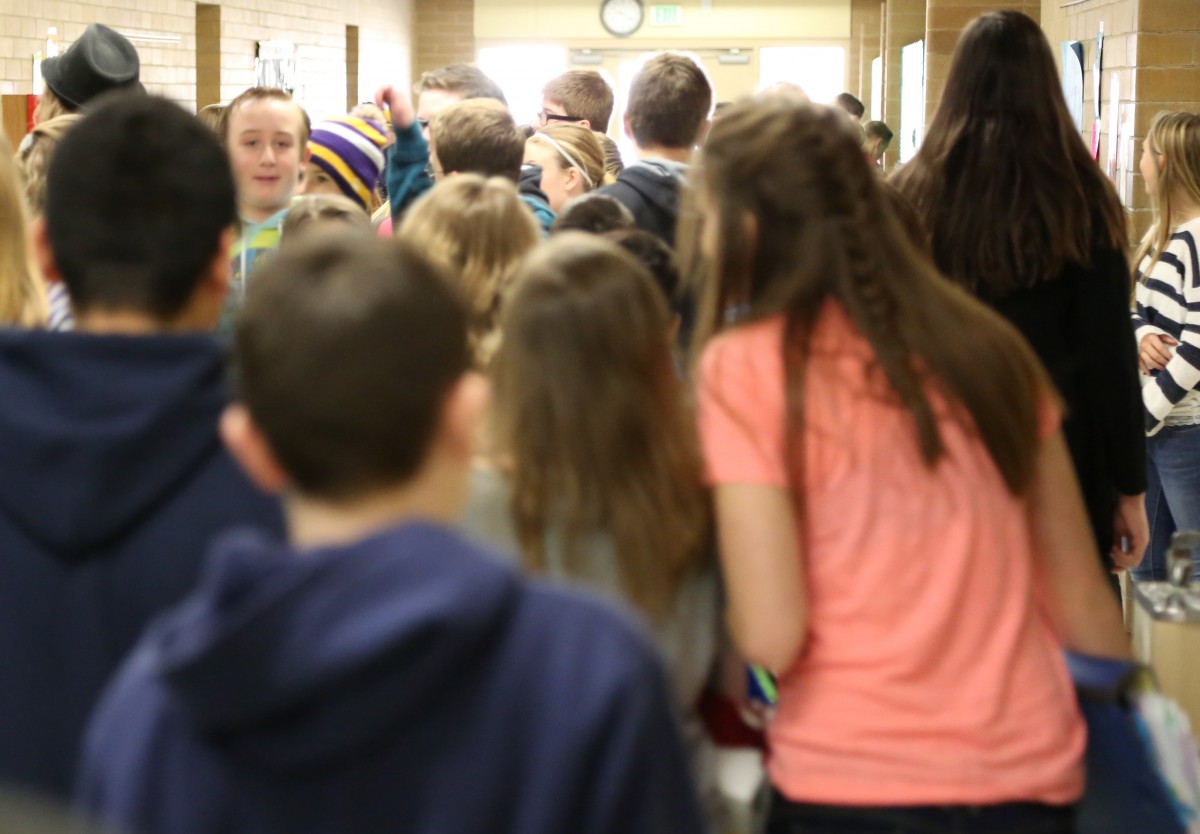Districts across the state will collect at least $7.7 million in “emergency” property taxes — money designed to cover the costs of growth.
In school funding parlance, the additional taxes are known as emergency levies. School districts qualify for emergency levies if their preliminary fall student numbers are up from the preceding year. School boards can pass an emergency levy without voter approval.
And for districts in the state’s growth areas, the emergency levy is a perennial tax of sorts — even though trustees can only approve the tax for one year at a time.
Emergency levies are often used to hire staff to help in crowded classrooms. It may be too late in the school year to recruit and hire teachers, so districts instead hire paraprofessionals to work with teachers. Districts also use the money to pay for textbooks and other supplies.
Based on the preliminary numbers, the state’s emergency levy bill might be down a bit from 2015-16, when districts collected more than $8.1 million in levies.
Here’s a closer look at emergency levies across the state:
West Ada: Idaho’s largest school district just keeps getting bigger. Based on the early numbers, student attendance is up by an additional 624 students — qualifying West Ada for a $3,017,000 emergency levy.

West Ada will use some of the money to purchase textbooks for new students, spokesman Eric Exline. The rest will be used to help plug a $4 million hole in the 2016-17 budget. In June, trustees voted to dip into reserves to balance this year’s books.
Twin Falls: Trustees approved a $1,771,378 emergency levy Monday. The money will help the district hire paraprofessionals to help in the district’s most crowded classrooms. The rest of the money will go toward math textbooks and other supplies and materials, spokeswoman Eva Craner said.
Twin Falls has added about 400 students this year.
Bonneville: Another one of Idaho’s perennial growth hotspots, this Eastern Idaho district will collect a $1,548,407 emergency levy.
For now, the levy is not earmarked for a specific purpose.
Bonneville is dealing with an influx of more than 600 students, chief financial and operations officer Guy Wangsgard said Wednesday.
Jefferson County: A $550,000 emergency levy will help the district purchase additional supplies, and assign paraprofessionals in overcrowded elementary classrooms. The Eastern Idaho district, located between Idaho Falls and Rexburg, has added 182 students this year.
“We are just growing every single year,” Superintendent Lisa Sherick said Wednesday.
Kuna: The suburban Ada County district will use a $332,352 emergency levy to set up portable classrooms and purchase computing devices for middle school and high school students.
Kuna’s enrollment is up by about 70 students, with most growth concentrated in the secondary grades.
Middleton: The Canyon County district will use a $300,000 emergency levy to focus on textbook adoption for 2017-18, Superintendent Josh Middleton said.
Caldwell: Trustees approved a $154,048 emergency levy. Caldwell will use the money to hire paraprofessionals and purchase class materials, Superintendent Shalene French said.
Kimberly: The fast-growing Magic Valley district will collect $79,008. More than $31,000 will be used to offset the costs of one full-time and three part-time paraprofessionals.
However, Kimberly tried to hold the line on its levy, Superintendent Luke Schroeder said Wednesday. With student numbers up by 115 from a year ago, the district was eligible to collect a $240,000 levy, he said.
Meanwhile, several districts are not collecting emergency levies this year, after qualifying for levies a year ago. Nampa and Coeur d’Alene are not eligible for emergency levies this year, because their enrollment did not increase.
And at least one other fast-growing district will pass on collecting an emergency levy. Enrollment is up by 230 in Canyon County’s Vallivue district, but the district will not impose an emergency levy, Superintendent Pat Charlton said Wednesday.
